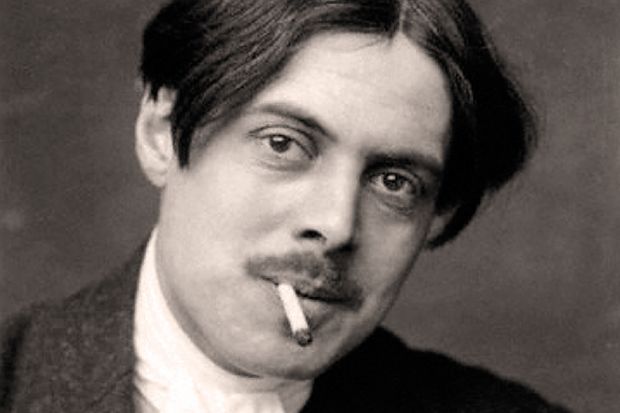Our fascination with celebrity culture harks back to the Victorians. With the proliferation of new media – mass-market newspapers, illustrated periodicals, photography – came an obsession with the private lives of the rich and famous. The celebrity author became a particular focus of heightened consumer interest: by the 1880s several specialist papers focused on “news” associated with the publishing industry, and series such as Edmund Yates’ “Celebrity at Home” interviewed well-known authors relaxing at home or socialising in their literary clubs.
“Historians of the future,” Yates later wrote in his Recollections, will eschew intellectual biographies and instead examine an author’s “daily life and personal habits…his tricks of post-touching and tea-drinking, his general method of tossing and goring all those differing from him in opinion”.
It’s against the backdrop of this voraciously prurient publicity culture that Jerome Boyd Maunsell sets his study of Modernism and autobiography. It’s a unique angle of approach, focusing on the periods when seven major novelists – from Henry James, Joseph Conrad and H. G. Wells to Ford Madox Ford, Edith Wharton and Gertrude Stein – sat down to depict their own lives in memoirs and autobiographies; or, rather, to perform that act of public revelation. As Wyndham Lewis (the final figure under consideration here) wrote in a draft preface to his autobiography Blasting and Bombardiering, “I am about to gossip. I am going to be exceedingly ‘personal’ about certain persons”, and he placed the blame squarely on his readers: “it is because of you that I descend to these picturesque details” (although we don’t get quite as far as learning about how anyone touched their post or took their tea).
Many of the writers gathered together in this short, elegant book deliberately developed new forms of life writing, in some instances dramatically rearranging events to play with chronology, memory and identity. Yet if the forms and functions of autobiography changed radically at this time, Maunsell is less concerned with experiments in genre or theory; this is, he warns us, “an experiment in…group biography” rather than a critical study.
What Portraits from Life lacks in dramatic statements, it more than makes up for in subtle, unassuming, decisive insights. Maunsell is right that literary critics are quick to chart artistic processes when it comes to fiction, but the writing of reminiscences – a task that frequently took years, absorbing a writer’s creative energies sometimes obsessively – tended until very recently “to be presented…as a fait accompli, as if these books somehow wrote themselves”. Portraits from Life “reconstructs the act of remembrance”, as well as what is being remembered, and paints a fascinating tableau of an alternative side to literary production in this period as a result. It’s striking how often autobiography was produced out of contingency rather than decisive retrospection: urgent financial need; to escape writer’s block; at the urgings of a friend or collaborator. It’s not just autobiographical content that is scarred by absences, gaps, missing evidence – the very process is marked by disjunction: picked up, put down, put off, endlessly revised.
Literary self-portraiture may be an impossibility, never quite embodying its subject, but it offers us “achingly close simulacra”, Maunsell writes – “lives frozen, reconfigured, remade”. Gertrude Stein once wrote that biography is akin to the detective novel: it risks killing its subjects, substituting them for someone else. Maunsell brings his back to life.
Charlotte Jones is lecturer in English literature at St Hilda’s College, Oxford.
Portraits from Life: Modernist Novelists and Autobiography
By Jerome Boyd Maunsell
Oxford University Press
304pp, £20.00
ISBN 9780198789369
Published 11 January 2018
Register to continue
Why register?
- Registration is free and only takes a moment
- Once registered, you can read 3 articles a month
- Sign up for our newsletter
Subscribe
Or subscribe for unlimited access to:
- Unlimited access to news, views, insights & reviews
- Digital editions
- Digital access to THE’s university and college rankings analysis
Already registered or a current subscriber? Login







